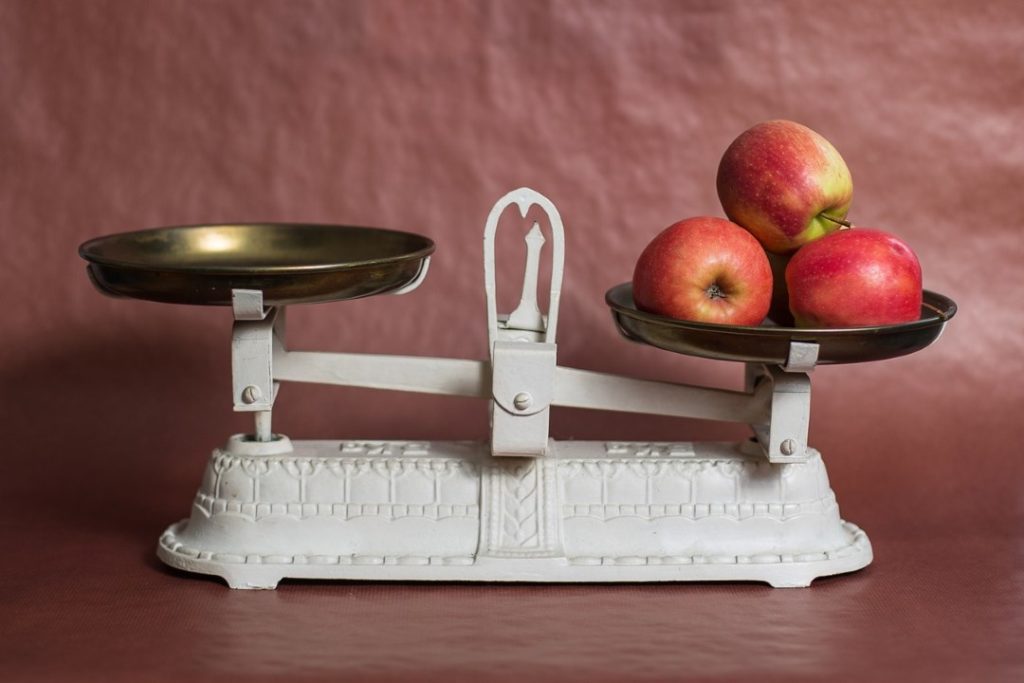
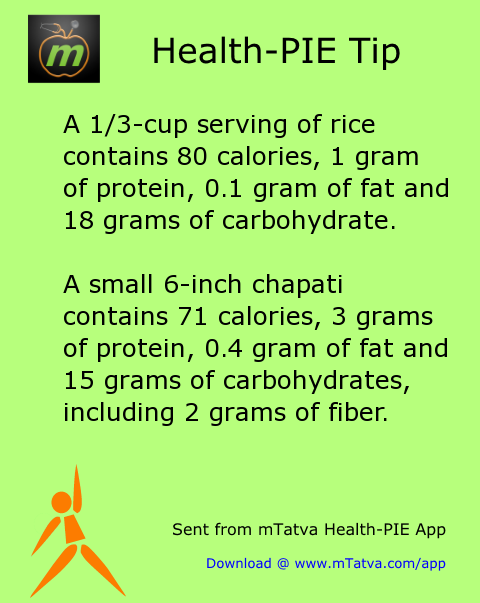
A 1/3-cup serving of rice contains 80 calories, 1 gram of protein, 0.1 gram of fat and 18 grams of carbohydrate.A small 6-inch chapati contains 71 calories, 3 grams of protein, 0.4 gram of fat and 15 grams of carbohydrates, including 2 grams of fiber.
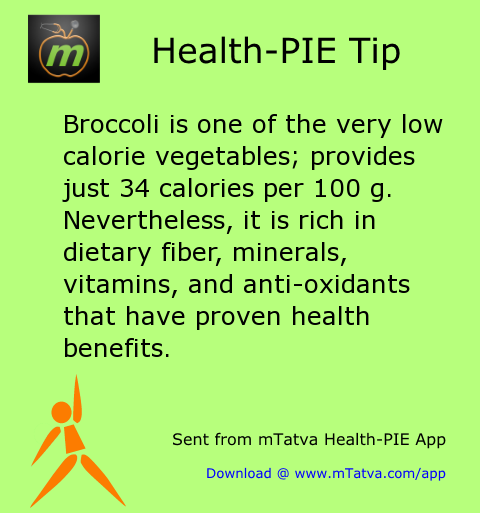
Broccoli is one of the very low calorie vegetables; provides just 34 calories per 100 g. Nevertheless, it is rich in dietary fiber, minerals, vitamins, and anti-oxidants that have proven health benefits.
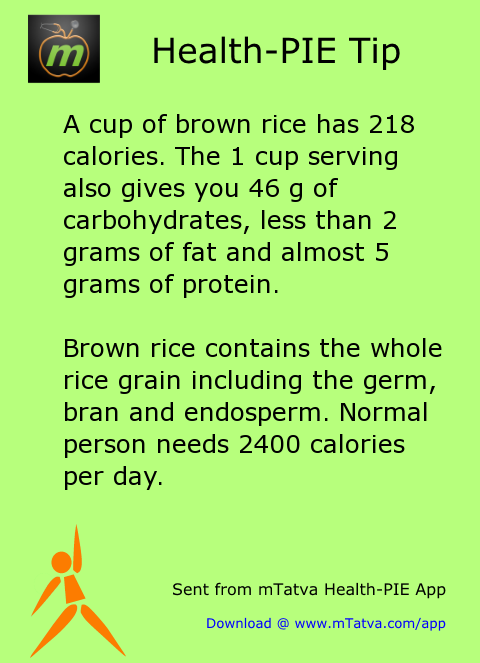
A cup of brown rice has 218 calories. The 1 cup serving also gives you 46 g of carbohydrates, less than 2 grams of fat and almost 5 grams of protein.Brown rice contains the whole rice grain including the germ, bran and endosperm. Normal person needs 2400 calories per day.
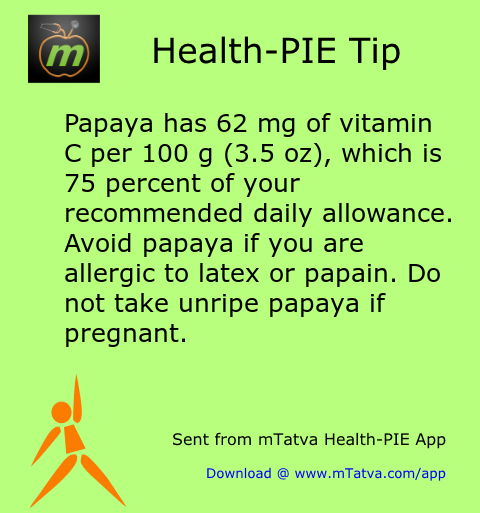
Papaya has 62 mg of vitamin C per 100 g (3.5 oz), which is 75 percent of your recommended daily allowance. Avoid papaya if you are allergic to latex or papain. Do not take unripe papaya if pregnant.
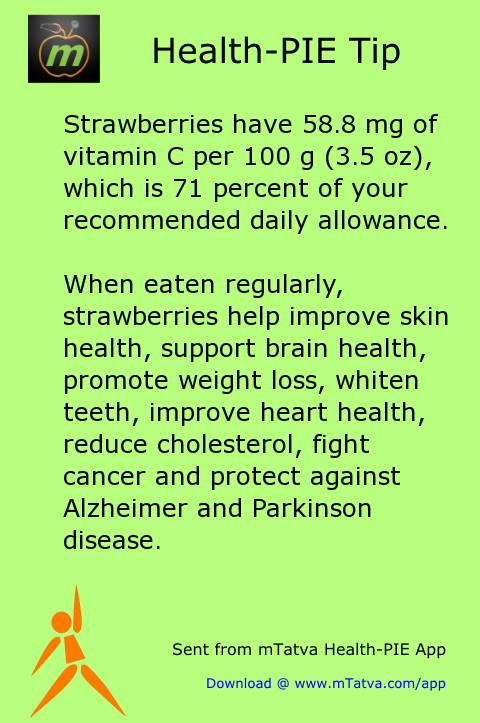
Strawberries have 58.8 mg of vitamin C per 100 g (3.5 oz), which is 71 percent of your recommended daily allowance.When eaten regularly, strawberries help improve skin health, support brain health, promote weight loss, whiten teeth, improve heart health, reduce cholesterol, fight cancer and protect against Alzheimer and Parkinson disease.
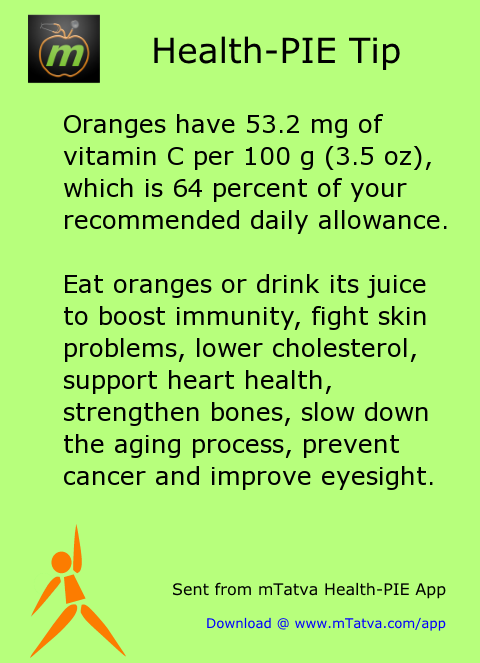
Oranges have 53.2 mg of vitamin C per 100 g (3.5 oz), which is 64 percent of your recommended daily allowance.Eat oranges or drink its juice to boost immunity, fight skin problems, lower cholesterol, support heart health, strengthen bones, slow down the aging process, prevent cancer and improve eyesight.
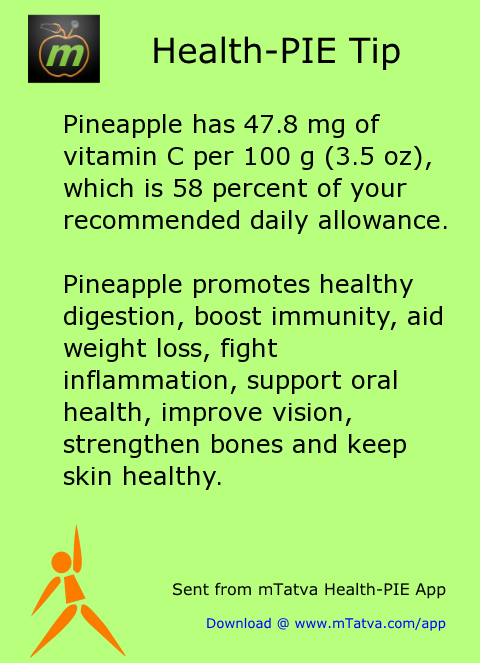
Pineapple has 47.8 mg of vitamin C per 100 g (3.5 oz), which is 58 percent of your recommended daily allowance. Pineapple promotes healthy digestion, boost immunity, aid weight loss, fight inflammation, support oral health, improve vision, strengthen bones and keep skin healthy.
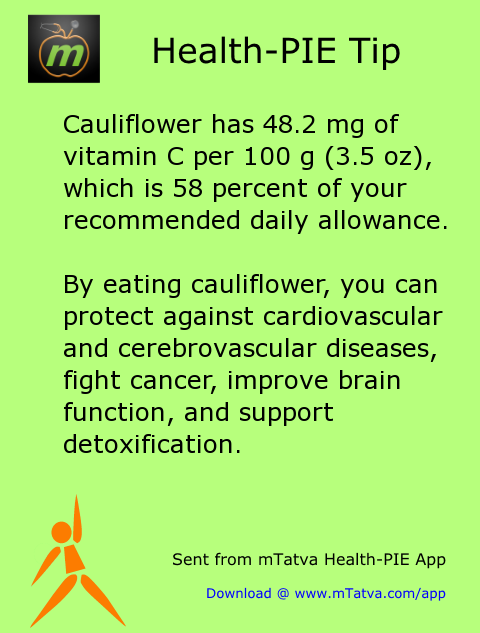
Cauliflower has 48.2 mg of vitamin C per 100 g (3.5 oz), which is 58 percent of your recommended daily allowance. By eating cauliflower, you can protect against cardiovascular and cerebrovascular diseases, fight cancer, improve brain function, and support detoxification.
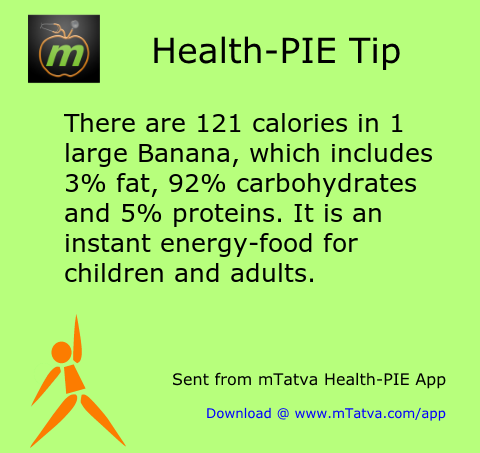
There are 121 calories in 1 large Banana, which includes 3% fat, 92% carbohydrates and 5% proteins. It is an instant energy-food for children and adults.
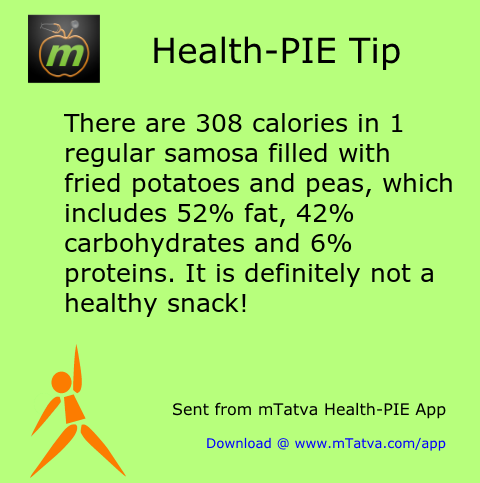
There are 308 calories in 1 regular samosa filled with fried potatoes and peas, which includes 52% fat, 42% carbohydrates and 6% proteins. It is definitely not a healthy snack!
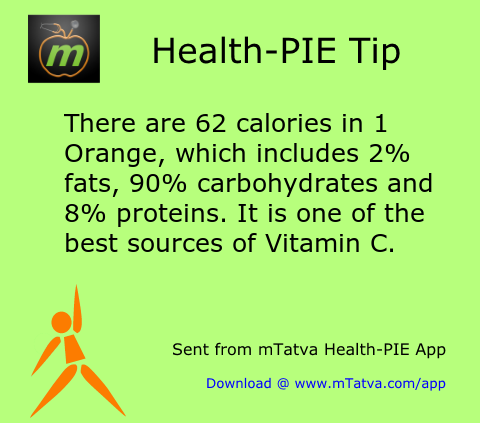
There are 62 calories in 1 Orange, which includes 2% fats, 90% carbohydrates and 8% proteins. It is one of the best sources of Vitamin C.
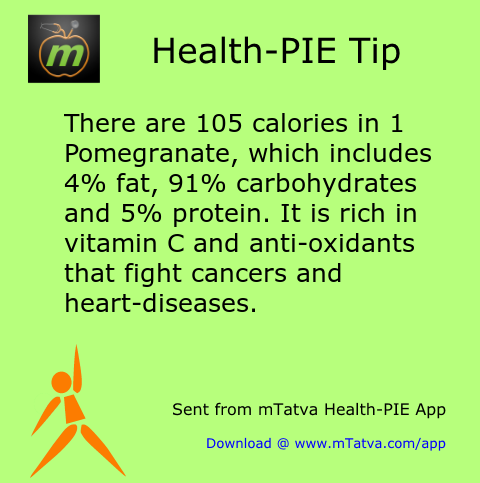
There are 105 calories in 1 Pomegranate, which includes 4% fat, 91% carbohydrates and 5% protein. It is rich in vitamin C and anti-oxidants that fight cancers and heart-diseases.
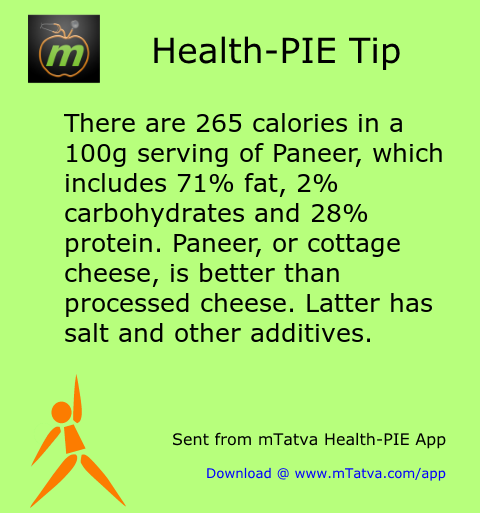
There are 265 calories in a 100g serving of Paneer, which includes 71% fat, 2% carbohydrates and 28% protein. Paneer, or cottage cheese, is better than processed cheese. Latter has salt and other additives.
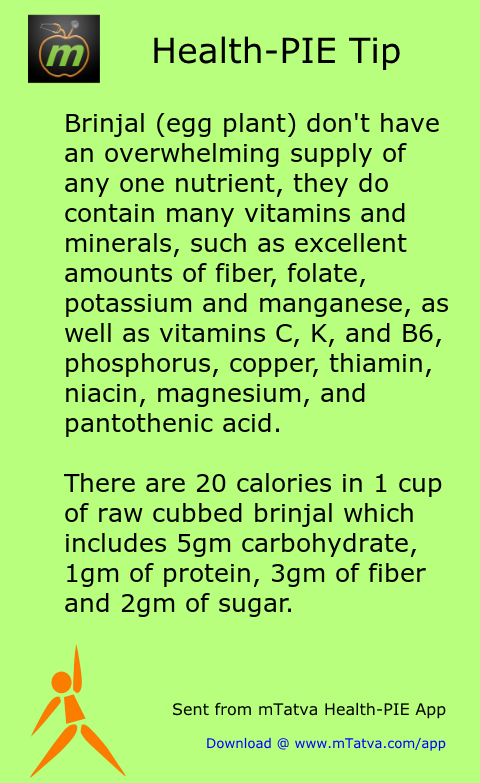
Brinjal (egg plant) don’t have an overwhelming supply of any one nutrient, they do contain many vitamins and minerals, such as excellent amounts of fiber, folate, potassium and manganese, as well as vitamins C, K, and B6, phosphorus, copper, thiamin, niacin, magnesium, and pantothenic acid. There are 20 calories in 1 cup of raw cubbed brinjal which includes 5gm carbohydrate, 1gm of protein, 3gm of fiber and 2gm of sugar.